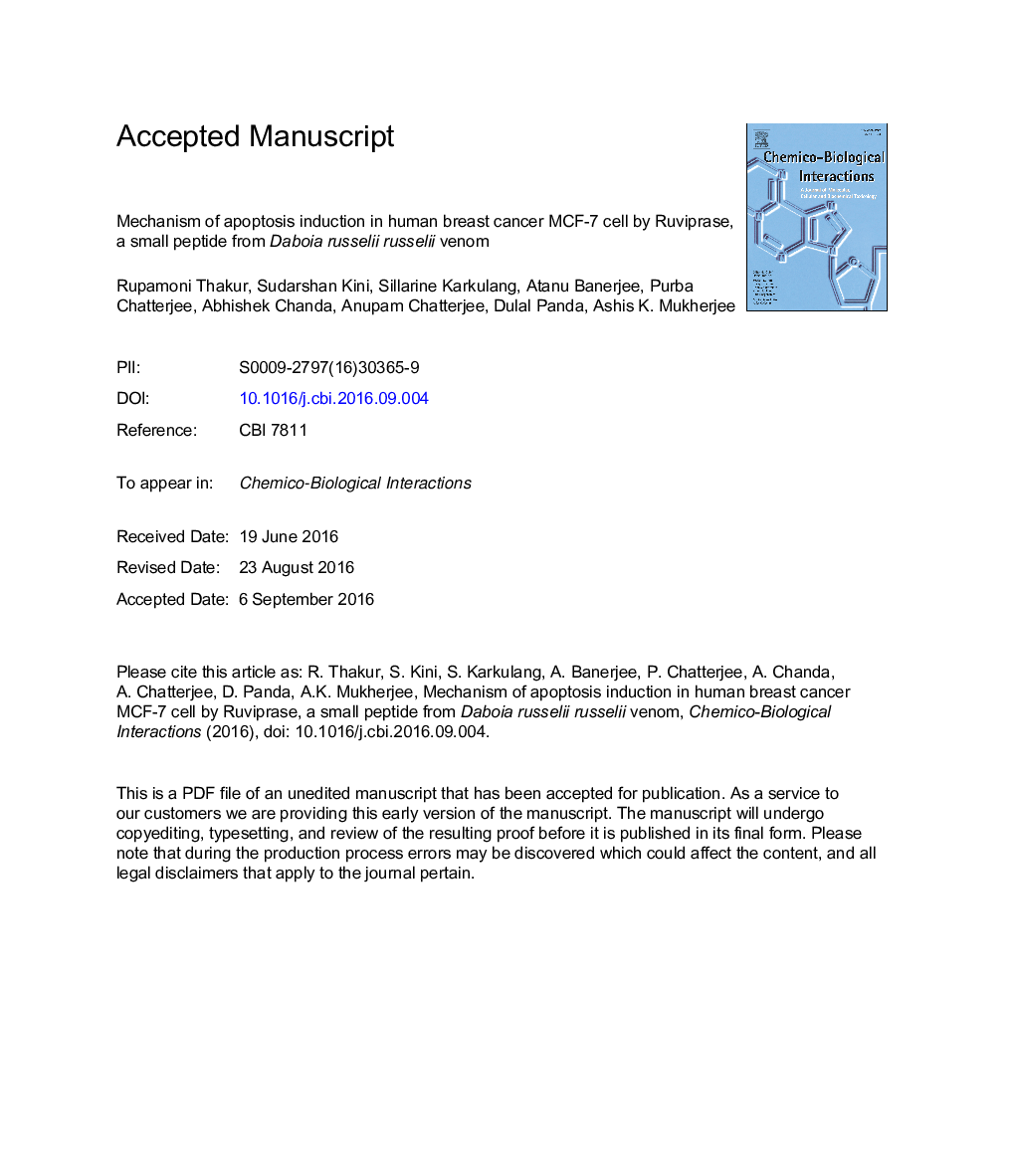| Article ID | Journal | Published Year | Pages | File Type |
|---|---|---|---|---|
| 8545663 | Chemico-Biological Interactions | 2016 | 25 Pages |
Abstract
Ruviprase, a 4.4 kDa peptide isolated from Daboia russelii russelii venom demonstrated antiproliferative activity against EMT6/AR1, U-87MG, HeLa and MCF-7 cancer cells with an IC50 value of 23.0, 8.8, 5.8 and 4.0 μg mlâ1, respectively. However, it was nontoxic to non-cancerous human embryonic kidney cell and human peripheral blood lymphocytes. Flow-cytometric analysis confirmed the apoptosis induction in MCF-7 cells by Ruviprase where it induced DNA condensation but did not cause mitotic blockage or chromosomal aberration in treated-cells. Immunofluorescence microscopic analysis indicated Ruviprase induced apoptosis in MCF-7 cells through p53 and p21-mediated pathways. Ruviprase generated reactive oxygen species (ROS), altered the mitochondrial transmembrane potential, and significantly decreased the cellular glutathione (GSH) content of MCF-7 cells. Immunoblotting and quantitative real-time PCR (qRT-PCR) analyses suggested that Ruviprase down-regulated the expression of anti-apoptotic protein Bcl-2, increased cleavage of poly (ADP-ribose) polymerase (PARP) protein, and up-regulated the expression of pro-apoptotic protein Bax, as well as executer protein caspase-7 to induced apoptosis in MCF-7 cells via intrinsic pathway. This is the first report on the characterization of the anticancer potential of a small, non-toxic and anticoagulant peptide purified from Russell's viper venom.
Keywords
EMEMPBSRVVp53DICPARPGSHHPBLqRT-PCRBSAROSbovine serum albuminRussell's viper venomEagle's minimal essential mediumApoptosisPhosphate buffered salineHuman peripheral blood lymphocytesMitochondrial pathwayquantitative real-time PCRPropidium iodidepoly (ADP-ribose) polymeraseAnticancer peptideCaspase-7differential interference contrastReactive oxygen species
Related Topics
Life Sciences
Environmental Science
Health, Toxicology and Mutagenesis
Authors
Rupamoni Thakur, Sudarshan Kini, Sillarine Kurkalang, Atanu Banerjee, Purba Chatterjee, Abhishek Chanda, Anupam Chatterjee, Dulal Panda, Ashis K. Mukherjee,
